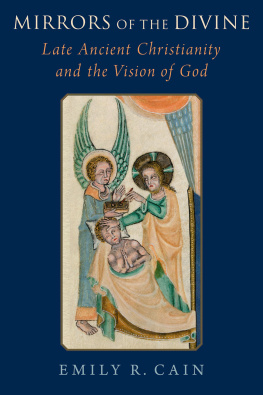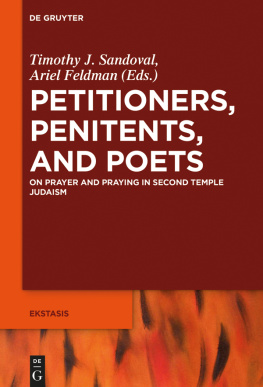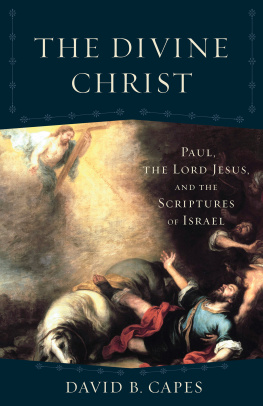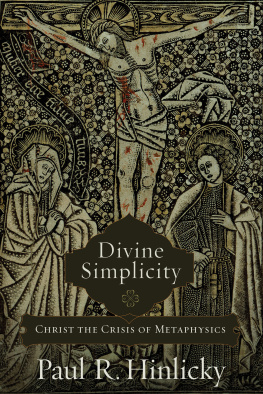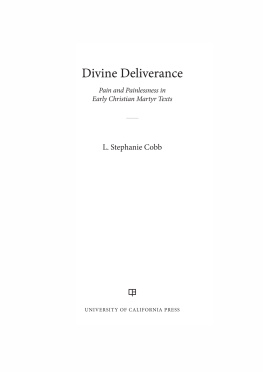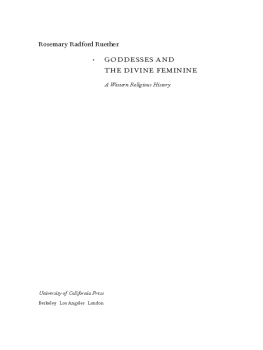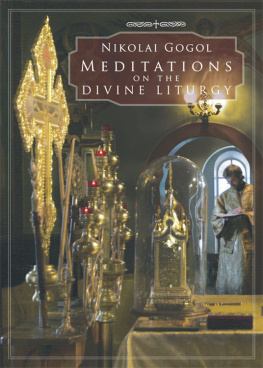DIVINE ACCOUNTING
SYNKRISIS
Comparative Approaches to Early Christianity in Greco-Roman Culture
SERIES EDITORS
Dale B. Martin (Yale University) and L. L. Welborn (Fordham University)
Synkrisis is a project that invites scholars of early Christianity and the Greco-Roman world to collaborate toward the goal of rigorous comparison. Each volume in the series provides immersion in an aspect of Greco-Roman culture, so as to make possible a comparison of the controlling logics that emerge from the discourses of Greco-Roman and early Christian writers. In contrast to older history of religions approaches, which looked for similarities between religions in order to posit relations of influence and dependency, Synkrisis embraces a fuller conception of the complexities of culture, viewing Greco-Roman religions and early Christianity as members of a comparative class. The differential comparisons promoted by Synkrisis may serve to refine and correct the theoretical and historical models employed by scholars who seek to understand and interpret the Greco-Roman world. With its allusion to the rhetorical exercises of the Greco-Roman world, the series title recognizes that the comparative enterprise is a construction of the scholars mind and serves the scholars theoretical interests.
EDITORIAL BOARD
Loveday Alexander (Sheffield University)
John Bodel (Brown University)
Kimberly Bowes (University of Pennsylvania)
Daniel Boyarin (University of California, Berkeley)
Fritz Graf (Ohio State University)
Ronald F. Hock (University of Southern California)
Hans-Josef Klauck (University of Chicago)
Angela Standhartinger (Marburg University)
Stanley K. Stowers (Brown University)
DIVINE ACCOUNTING
Theo-Economics in Early Christianity
JENNIFER A. QUIGLEY
Yale UNIVERSITY PRESS
New Haven and London
Published with assistance from the foundation established in memory of Amasa Stone Mather of the Class of 1907, Yale College.
Copyright 2021 by Yale University.
All rights reserved.
This book may not be reproduced, in whole or in part, including illustrations, in any form (beyond that copying permitted by Sections 107 and 108 of the U.S. Copyright Law and except by reviewers for the public press), without written permission from the publishers.
Yale University Press books may be purchased in quantity for educational, business, or promotional use. For information, please e-mail (U.K. office).
Set in Janson type by Newgen North America.
Printed in the United States of America.
Library of Congress Control Number: 2020947045
ISBN 978-0-300-25316-0 (hardcover : alk. paper)
A catalogue record for this book is available from the British Library.
This paper meets the requirements of ANSI/NISO Z39.48-1992 (Permanence of Paper).
10 9 8 7 6 5 4 3 2 1
Contents
Acknowledgments
I AM GRATEFUL FOR all who helped shape and support this project. My colleagues at Drew University Theological School are brilliant teachers and scholars, and I am especially appreciative of Kate Ott, who has been an enthusiastic mentor and friend. Dean Javier Viera and Associate Dean Melanie Johnson-DeBaufre have been incredibly supportive of this project. My thanks as well to Hilary Floyd, who has been a meticulous research assistant. The book would not exist in this form without her labor. Drew Ph.D. students Darryl Blood-saw, Julian Cook, Hilary Floyd, Wren Hillis, Jennifer Maidrand, and Kelsey Wallace participated in my spring 2019 Economy and the Bible seminar and provided brilliant conversation partners and readers of this book in development. I am grateful to the students in my Letters of Paul class, who always ask the most creative and important questions and from whom I learn so much.
The faculty in New Testament and early Christianity at Harvard Divinity School (HDS) have been generous with their time, offered helpful critiques, and inspired me with their own scholarship. My deep thanks to Giovanni Bazzana, Karen King, and Elisabeth Schssler Fiorenza. I am especially grateful for my advisor, Laura Nasrallah, who is a generous mentor, tireless advocate, and deeply thoughtful teacher, scholar, and reader.
My thanks to the cohort of doctoral students at HDS, who modeled collegiality both during their time in the program and far beyond; to Margaret Butterfield, Jung Choi, Chris Hoklotubbe, Roberto Mata, Tyler Schwaller, and Katherine Shaner, who have come before; to Greg Given, Sarah Griffis, Eunyung Lim, Karen Connor McGugan, Heather McLetchie Leader, and Kelsi Morrison-Atkins, my colleagues in the doctoral dissertation seminar, whose generous reading and wise responses have strengthened this book and whose own brilliant dissertation work influences my own. My thanks to Chance Bonar, Lydia Bremer, Jordan Conley, Sarah Porter, Luan Ribiero, and Jeremy Williams for continuing to grow the scholarly community that we have together. I am indebted especially to Greg Given and Lydia Bremer for their meticulous and careful reading of this text. I am grateful to all for their friendship.
My research, writing, and teaching have been deeply informed by colleagues in the Louisville Institute Postdoctoral Fellowship, including Mary Emily Briehl Duba, Kyle Brooks, Jaisy Joseph, Kyle Lambelet, Jennifer Owens-Jofr Salih Sayilgan, and Mike Walker. Edwin Aponte and the staff of the Louisville Institute have provided not only funding support but also generous mentoring. I am also grateful for my doctoral cohort colleagues from Harvards Committee on the Study of Religion, with whom I enrolled in REL 2001, including Charisse Barron, Austin Campbell, Gregory Clines, Kyrah Daniels, Janan Delgado, Joanna Greenlee, Filipe Maia, Michael Motia, Axel Takcs, Craig Tichelkamp, Lina Verchery, Funlayo Wood, and Kimberly Wortmann.
I have been fortunate to have had several opportunities to research, write, and present work that have shaped the direction of this book. My thanks to the Dumbarton Oaks Byzantine Coins and Seals Summer Program and to Eurydice Georganteli and Jonathan Shea. I am grateful to have had the opportunity to complete a numismatics internship at the Harvard University Art Museums, and I thank Carmen Arnold-Biucchi for her mentorship and supervision. I am grateful to Humboldt Universitt zu Berlin and to Cilliers Breytenbach for hosting me in a student exchange. I have received helpful feedback on this project from presentations at the annual and international meetings of the Society of Biblical Literature and the conference Philippi: From Colonia Augusta to Communitas Christiania: Religion and Society in Transition. Joseph Marchal provided engaged and incisive response as I edited this manuscript. My gratitude to HDS for its travel funding support, including the HDS Conference Fund and the Pfeiffer Fund; I am also indebted to the Marion and Jasper Whiting Foundation Fellowship Travel Grant. I have received generous support for dedicated writing time, and I am grateful to the Woodrow Wilson Foundation for the Charlotte W. Newcombe Doctoral Dissertation Fellowship and to HDS for the Deans Dissertation Fellowship. I owe many thanks to Kathryn Kunkel, the Th.D. program coordinator, for her generous help throughout my doctoral program.
A word of gratitude to Robert Allan Hill and the many colleagues and friends of the Marsh Chapel community, saints too numerous to name. I am a better scholar and teacher because of students from Boston University from whom I have learned so much: Thomas Batson, Jennifer Bishop, Abigail Clauhs, Matthew Cron, Jaimie Dingus, Oelmis Fermin, Devin Harvin, Bethany Kotlar, Robert Lucchesi, Maritt Novak, Phoebe Oler, Emma Pennisi, Rebekah Phillips, Ian Quillen, Nick Rodriguez, Kate Rogers, Kasey Shultz, Tyler Sit, Denise-Nicole Stone, Courtney Tryon, Demarius Walker, and Savannah Wu. My thanks to Gregory Palmer for the institutional support and freedom to pursue my studies.


